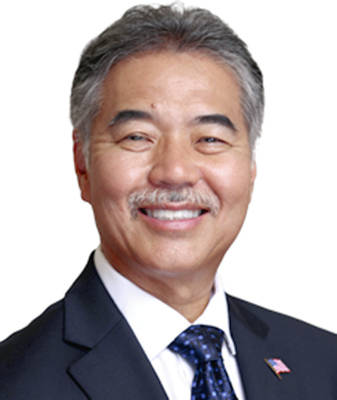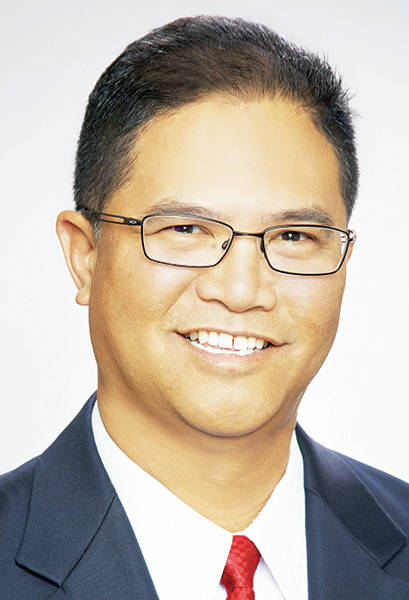LIHUE — Affordable housing, creating quality jobs, education and traffic were top priorities Gov. David Ige spoke of during his State of the State address Monday from the State Capitol in Honolulu.
And though Kauai legislators supported his speech touching on things like homelessness, the economy and sustainability, some say there wasn’t enough attention on future plans.
Kauai Representative Jimmy Tokioka said he applauds the governor’s efforts in managing the cost of living and his efforts toward fulfilling one hundred percent renewable energy generation by 2045 — and he especially liked Senate President Ron Kouchi’s recognition of the Kauai Island Utility Cooperative, which has been a leader in developing renewable energy resources and reducing dependence on imported fossil fuels.
“These are issues that demand immediate action, and we are proud that Kauai has been on the forefront of the movement towards renewable energy in Hawaii,” Tokioka said.
The State-of-the-State Address could have been more targeted toward action, said representative Dee Morikawa, instead of rehashing ongoing conversations.
“I was disappointed that he didn’t discuss what he was going to do moving forward,” she said.
In Hawaii, according to Ige, homelessness is down nine percent statewide, the first decline in eight years. Though lawmakers have accomplished a great deal in regards to homelessness and affordable housing, Ige said, there’s still a lot of work to be done.
He’ll be asking for $100 million this session, in order to continue advancing a solution to these issues.
“When we say ohana, we truly mean that nobody gets left behind. For those who want to live in Hawaii, probably no issue is more challenging than finding a decent, affordable place to live,” Ige said.
During the last session, Ige said lawmakers have initiated the largest annual increase in production of affordable housing. “We’re on track to meet our goal of 10,000 new housing units by 2020, with at least 40 percent affordable,” he said.
Developing and delivering Hawaiian homelands to beneficiaries is something the state must also remain committed to, Ige said. In 2016, $24 million was provided to the Department of Homelands, the highest level of funding in the department’s 95-year-history and double what had been set aside previously.
The funding, Ige said in an interview with The Garden Island, came from a general appropriation fund. It’s not specific to Kauai, but the department is in the process of staffing and hiring new employees, some of which could be on Kauai.
Since then, Ige said the department has been ramping up development of turnkey lots. “More than 220 lots were awarded in 2017 and that number will more than double in 2018,” Ige said.
Rep. Nadine Nakamura, vice chair of the Housing Committee, said she is pleased that the Governor is proposing bills to address homelessness and affordable housing.
“The state must partner with the counties, non-profit and for-profit developers to build more affordable rental housing,” Nakamura said. “I plan to support these bills.”
Ohana, Ige said, also means that you should be able to put food on the table and be home with your family to eat it. He said many Hawaii residents are working more than one job and even so are one catastrophe away from crises.
“The challenge,” Ige said, “is not about creating jobs, it’s about creating quality jobs.”
Focusing on investing in Hawaii’s people is one way he’s accomplishing this goal and early college education is just one example of his investment in the future of Hawaii.
“It’s a game changer,” Ige said. We are working on expanding it to all high schools in the state. Right now, we offer 260 classes statewide.”
The program, he said, has been very effective for families who have never had a student in college before. Being able to finish college classes while in high school builds the student’s confidence, Ige said in an interview, and it can save families $7,000 – $8,000 in tuition costs for their student’s first two years of college.
In May, the first group of early college education students will be graduating from schools across they state with both a high school diploma and an associate of arts degree.
The state is also in the process of seeking additional funds for it’s Hawaii Promise scholarship program. Until then, Ige said the university system is creating scholarships to help fill in the gaps.
Additionally, they’ve seen success in giving students a 21st century education by implementing project based learning as well as focusing on science, technology, engineering and mathematics subjects.
The state’s also been focusing on awarding grants to small and medium sized businesses, so they can focus on global markets as well as Hawaii markets, Ige said.
“I understand the frustration of many” Ige said during his speech, “and that’s why I’m working to transform our economy, to give residents the diversity of employment opportunity that lead to higher wages and lead to a better quality of life for all.”
Ige said that it’s unacceptable that there aren’t more opportunities for Hawaii’s youth have to leave the islands in search of better opportunities.
“It is not acceptable to me that many of our kids are essentially becoming immigrants in other places,” he said.
Another quality of life issue Ige said Hawaii residents face everyday is traffic congestion.
Plans for Kauai include widening the south bound 0.64 mile stretch of Kuhio Highway between the Temporary Kapaa Bypass Road and Kuamoo Road from three to four lanes and would extend the existing right-turn storage lane along Kuamoo Road Mauka from its intersection with Kuhio Highway. The widening of this stretch of highway is expected to improve access to Waillua and Kapaa.
They’ll also be modernizing traffic signal systems at select intersections on Kauai.
“I have three goals, get projects done quickly, get projects done inexpensively and get them done with minimum impact on the environment and we are making progress,” Ige said.







“We’re on track to meet our goal of 10,000 new housing units by 2020, with at least 40 percent affordable,” he said.
Does this mean that 60% won’t be affordable?
The article speaks at length about Ige’s plan.. The title of the article has nothing to do with the article. Please hire actual writers TGI.
Proposing more bills for homelessness. Why would a company would want to build a housing complex for homeless people, then just leave Kaua’i? There is no reason to build that complex.
Keep Kaua’i Kaua’i. This has been the law awhile back. And for obvious reasons. Nature and sustainability.
More same same but what was new and interesting is the Gov’s Idea to hire more state employees to run more expensive programs.
More state employees is the same as hiring more voters and their families to keep the same same people in elected office.
We can’t expect to do the same same things over and over and expect a different result.
When you read the above article it makes me think Hawaii is not a melting pot population with equality for all.
It should be a law that all age eligible people vote as is the case in some countries.
As in educate yourself and vote wisely.
Mahalo
Charles
Why is there collaboration in County government? Law makers make laws of all sorts citing human interaction in a democratic society. What would benefit the society is people seeking needs and fulfilling them. How does this help Kaua’i when people in government are passing or proposing bills that are of no impact to Kaua’i or the state? Flawed political scene and flawed public office candidacy has become a nuicance.